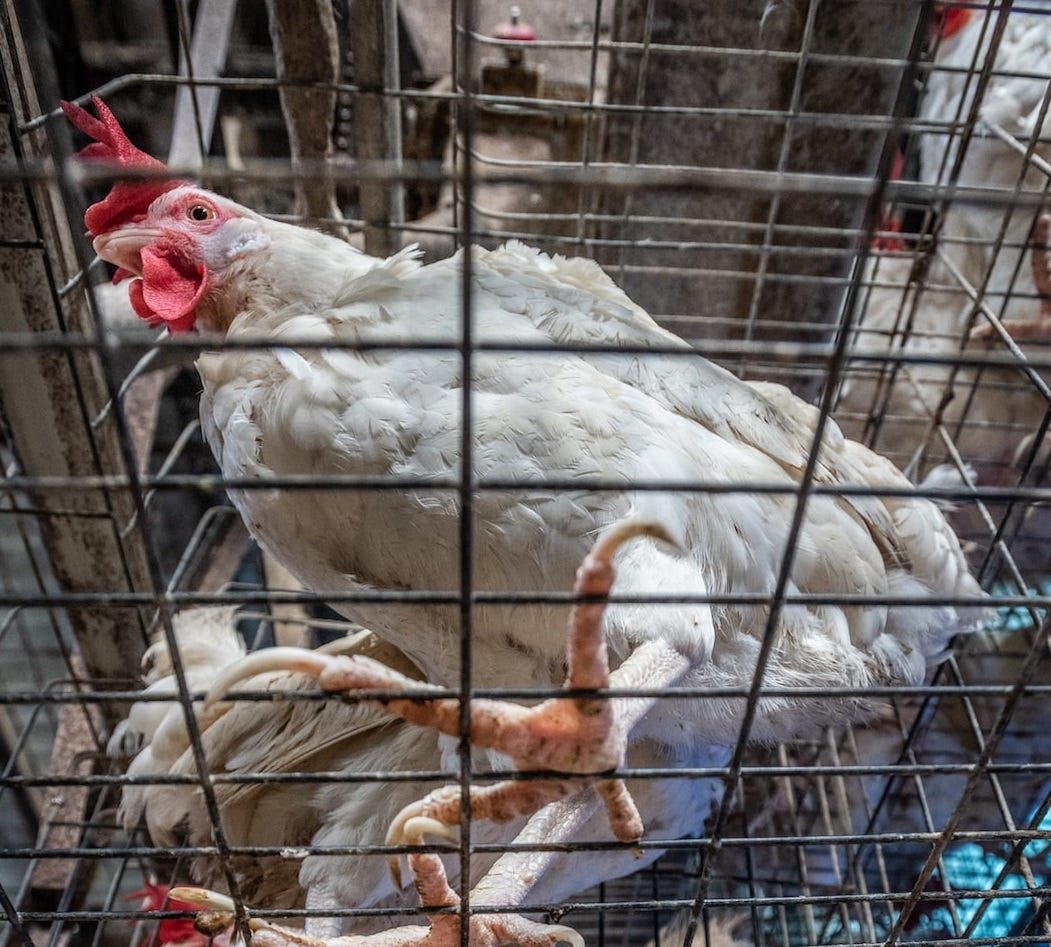Our alignment with animals
King Solomon states it bluntly.
If you look at the Torah from 10,000 feet, the letters are too small to read.
It’s a metaphor. Oh.
Metaphorically speaking, if you look at the Torah from 10,000 feet, you’ll see that human beings are placed at the top of the heap, but the gap between ourselves and non-human animals is rather narrow.
You can infer that the Author or authors of the Torah were very concerned that humans were evincing a haughty attitude toward the Animal Kingdom. The Torah clearly conveys the message we’re not all that different from our furry, feathered and scaly neighbors.
This point is driven home during the holiday of Sukkot, which started Friday night. During Sukkot, it is customary to read The Alignment’s favorite Jewish text, Ecclesiastes.
This is what Ecclesiastes 3:19-21 has to say on the subject:
“For in respect of the fate of man and the fate of beast, they have one and the same fate: as the one dies so dies the other, and both have the same lifebreath; man has no superiority over beast, since both amount to nothing.
“Both go to the same place; both came from dust and both return to dust.
“Who knows if a man’s lifebreath does rise upward and if a beast’s breath does sink down into the earth?”
While the author of Ecclesiastes (King Solomon himself, according to the rabbis), is putting it rather bluntly, he is also merely stating the obvious.
It isn’t just that we all live and we all die. We all have two eyes, two ears, one nose, one mouth, a brain and a heart. We all need to eat, breathe and sleep and we all like to procreate (with a few exceptions).
So where do we get off thinking that we’re so far superior to other animals? It’s pure hubris.
Even the one thing that supposedly sets us apart and above – language – is dissolving like a sandcastle as the waves of science crash on the beach.
Chickens, perhaps the most oppressed and exploited animal on our planet, have been found to make dozens of distinct vocalizations to communicate information, such as the proximity of a predator or the presence of food.

My canine companion, Maizie, also communicates with a range of different vocalizations, including grunts, whines, barks and yelps. (The barking, I could do without. But it comes with the package.)
As the New York Times recently reported, scientists have been unable to locate anything unique about human vocalizations. Whether you’re looking at our brains, our genes or our vocal cords, there is no fundamental difference among human and non-human animals.
We’ve come a long way since Descartes famously and tragically derided animals as unthinking machines.
As the Times stated, “With each (new scientific) discovery, the cognitive and moral divide between humanity and the rest of the animal world has eroded.”
In other words, we are – or at least should be – in alignment with non-human animals.
King Solomon was way ahead of his time. His message is highly relevant now.
And the implication is clear:
If animals are so similar to us, we shouldn’t be confining, mutilating, and killing them – or eating their flesh.
Chag Sukkot Sameach, dear readers of The Alignment!
And thank you, King Solomon, if it was indeed you, for writing Ecclesiastes. And thank you, rabbis of yesteryear, for including Ecclesiastes in the Tanakh, the official Jewish canon.
If you like this post, feel free to click the ❤️ or 🔄 button on this post so more people can discover it on Substack 🙏



Two or three years ago when I was working on a post, I noticed something. In Gen. 1:30, G-d assigns food to the humans this way:
וַיֹּ֣אמֶר אֱלֹהִ֗ים הִנֵּה֩ נָתַ֨תִּי לָכֶ֜ם אֶת־כׇּל־עֵ֣שֶׂב ׀ זֹרֵ֣עַ זֶ֗רַע אֲשֶׁר֙ עַל־פְּנֵ֣י כׇל־הָאָ֔רֶץ וְאֶת־כׇּל־הָעֵ֛ץ אֲשֶׁר־בּ֥וֹ פְרִי־עֵ֖ץ זֹרֵ֣עַ זָ֑רַע לָכֶ֥ם יִֽהְיֶ֖ה לְאׇכְלָֽה׃
God said, “See, I give you every seed-bearing plant that is upon all the earth, and every tree that has seed-bearing fruit; they shall be yours for food.
Then in Gen. 3:18, after the humans eat from the Tree of Knowledge, G-d reassigns food like this:
וְק֥וֹץ וְדַרְדַּ֖ר תַּצְמִ֣יחַֽ לָ֑ךְ וְאָכַלְתָּ֖ אֶת־עֵ֥שֶׂב הַשָּׂדֶֽה׃
Thorns and thistles shall it sprout for you (the ground they till)
But your food shall be the grasses of the field...
It seems to me as though the change in diet shows G-d reminding the humans of their status, which is the same as the status of nonhuman animals, who, in Gen. 31, are assigned food this way:
וּֽלְכׇל־חַיַּ֣ת הָ֠אָ֠רֶץ וּלְכׇל־ע֨וֹף הַשָּׁמַ֜יִם וּלְכֹ֣ל ׀ רוֹמֵ֣שׂ עַל־הָאָ֗רֶץ אֲשֶׁר־בּוֹ֙ נֶ֣פֶשׁ חַיָּ֔ה אֶת־כׇּל־יֶ֥רֶק עֵ֖שֶׂב לְאׇכְלָ֑ה וַֽיְהִי־כֵֽן׃
And to all the animals on land, to all the birds of the sky, and to everything that creeps on earth, in which there is the breath of life, [I give] all the green plants for food.” And it was so.
With this change, humans are no longer assigned agricultural produce, seed bearing trees and plants ... but the grasses of the field like other animals.
Love your posts! So interesting and well-written!
I’ll add my thanks to the wise king.